Protect the Girl Child from being trafficked
Pendo is a girl of 14, a cocaine addict, and a sex worker.
She ‘walks’ the streets of Dar es Salaam most nights to hook up with men so that she would pay the pimp who ‘owns’ her as well as pay for her habit of cocaine snorting.
She was taken from her village in Iringa when she was 12 years of age by a woman who claimed to be an agent for a firm which recruits domestic workers.
Pendo’s parents were paid 45,000 TZS as ‘the fee’ for agreeing to send their daughter with a strange woman to Dar es Salaam ostensibly to get employment as a domestic worker.
Pendo’s parents saw the woman from Dar es Salaam as wealthy- she wore expensive clothes and gold rings. The woman also spoke of the good home and the nice family which would be employing Pendo as a domestic worker.
The woman told Pendo’s parents that part of Pendo’s wage of 60,000 TZS per month would be sent to them by the ‘employing family’.
Pendo got into the bus for Dar es Salaam with the woman and six other girls from other villages in Iringa, who ranged in age from 11-13 and who were told by the woman to address her as ‘Mama’.
Some of the younger girls – two who were 11 years of age cried all the way in the bus from Iringa to Dar es Salaam, saying they do not wish to be separated from their parents. The ‘Mama’ slapped one of the girls and told her to “shut up”, otherwise, she would have her thrown out of the bus in the middle of nowhere, where wild animals roam.
The girls stopped crying out of fear.
When they got to Dar es Salaam, the ‘Mama’ was met by two people at the bus station, a man, and another woman who started haggling over the price of the girls with the ‘Mama’.
Eventually, the woman in the duo which was waiting in Dar es Salaam took away four of the girls from Iringa while the man took away three girls.
Money exchanged hands between the ‘Mama’ and the ‘welcoming committee’ and she got into a taxi and went off without a backward glance at the seven girls who she had taken away from their parents; their friends; their homes. In fact, she was speaking on her mobile phone while the taxi she had boarded took off.
Pendo was one of the girls who were ‘bought’ from the ‘Mama’ by the man at the bus station in Dar es Salaam.
The man who told Pendo and the other girls whom he had ‘bought’ from the ‘Mama’ crammed them in an auto rickshaw popularly known as kibajaji in Tanzania and took them to a shanty which Pendo was later to learn is in Manzese, in Dar es Salaam.
There, they were put in a dilapidated, windowless room in a guest house with five other girls and given some rice and beans to eat. They were shown the latrine which was just a hole in the ground with walls made from gunny sack. They were also told they had to get water from a public tap near the guest house. By then, it was 4 p.m. and by 4.30, a woman came in with some mitumba clothes and gave them to Pendo and her travelling companions, with the admonition that they should get dressed within the hour.
Pendo could see the girls who were ‘established’ having been brought to Dar es Salaam a while back, getting dressed in flimsy clothes and putting on garish make up.
One of them, Sluma, looked stick thin and she kept sniffling and speaking to someone on her mobile phone while begging the person she was speaking to, to send her the ‘flour’, unga and that she, Sluma would pay the person late at night after she goes into the Viwanja, the streets where girl child sex workers walk to get punters who pay them for sex.
Eventually, a young man in jeans and a T shirt, wearing gold chains and heavy gold rings came into the room, having dismounted from a Boda Boda, the motorcycle taxis, and handed a small package to Sluma.
Sluma’s hands were shaking as she took the package from the young man whom she addressed as Pedeje. He warned her that she should pay him before sunrise; otherwise, he would break her face. He then got back on the Boda Boda and went off.
Sluma went into a corner of the crowded room, bent her head into the package and what Pendo saw was Sluma breathing in some flour like powder into her nose.
Sluma saw Pendo staring at her and told her “to keep out of my face”, but when she saw Pendo about to cry, Sluma became kinder and told Pendo “Without this flour, I would go mad. This flour makes me happy. I work better when I use this flour”.
A woman came in and started shouting to the girls that the kibajaji has been called to take them to the Viwanja. The new girls were each given a companion from among the older consignment of girls ‘to show them the ropes’.
Pendo was told to go with Sluma who told Pendo that she is 14 years of age and that she had been taken from Singida by a woman who had gone to her village and told her parents that she would take Sluma to work in her hairdressing salon, while training her.
The woman paid Sluma’s parents 70,000 TZS as advance against Sluma’s wages then brought Sluma to Dar es Salaam and sold her to the same man who had bought Pendo. The man then put her in his stable of girls and turned her into a girl child sex worker.
Sluma told the driver of the kibajaji to stop along a street which had a lot of cars and then she told Pendo to wave at the drivers. If a car stopped, Pendo was to bargain with the man about price. Pendo was told not to go below 10,000 TZS because she has to take back money to the man who had bought her, a minimum of 30,000 TZS per night.
That night became Pendo’s entry into the dark world of paedophiles that pay pimps to have sex with underage girls.
It was also the beginning of Pendo’s journey into sexual abuse; narcotic drugs; sexually transmitted diseases; beatings from both the man who bought her and from the paedophiles; fights with other girl child sex workers over space; turf and clothes; acute depression which made her sink further into narcotics abuse; isolation from the mainstream of society; getting into debt with Pedeje, the supplier of the narcotic drugs; loss of self esteem and the dignity which she had when she was a happy little girl in her village in Iringa.
Pendo does not have the willpower to escape and go back to her parents. In a way, she feels her parents ‘sold’ her to the ‘Mama’ who had come to get her from her home. She rarely talks about her parents, although she would occasionally say she fears about her younger sister, that she too, could get sold into sexual slavery.
In 2008, the Tanzania Gender Networking Programme (TGNP) conducted a Study of four districts in Tanzania- Kinondoni; Ilala and Temeke districts in Dar es Salaam and Mbeya Urban in Mbeya region.
I conducted the survey of Temeke district in Dar es Salaam. The findings on sex workers are given in the short narrative below.
Of the five sex workers interviewed in Temeke district for the Transformative Feminist Movement Building (TFMB) Study done by the TGNP in 2008, two were taken from their natal villages, under false pretences of getting them jobs in Dar es Salaam and then were forced into sex work when they arrived in the city. These are the Pendos and the Slumas.
Two got into the profession because of poverty, having gotten pregnant as schoolgirls and been thrown out of their homes by their families. They were around the age of 15 when we conducted the Study; and one ran away from home.
The youngest – 13 years of age, had become a street child at age eight to avoid physical abuse from a drunkard father. Her mother was also experiencing physical violence. She was sexually abused as a street child by watchmen and shopkeepers until at the age of 12 she discovered that you could get paid for sex. That’s when she became a sex worker. (Source TFMB/TGNP/Temeke/2008).
Tanzania is mainly a country of origin and transit for trafficking in persons. Tanzanian women and children are trafficked to Burundi, Malawi, South Africa, and the Middle East.
There is also internal trafficking within Tanzania. Children are usually trafficked from rural to urban areas and are forced to work in the domestic, agricultural, fishing, or mining sectors. Tanzania is also a transit country for Somalis trafficked through Kenya to South Africa. (Source UNICEF).
Various factors contribute to the widespread problem of trafficking in children throughout Tanzania. Among the most significant factors are poverty and the disintegration of the family unit. Families do whatever they can to survive, even if it means forcing their daughters into prostitution.
In addition, as part of a traditional practice, low-income parents often send their children to wealthier relatives to care for as their own; however, those wealthy relatives sometimes “take advantage of this traditional practice to recruit children, promising them a chance of employment or education, but instead place the child in a situation where he or she is exploited.” Moreover, the growing tourism industry in Tanzania increases the demand for women in prostitution. (Source UNICEF).
I once traveled with two girls by air from Dar es Salaam to Nairobi. They sat next to me on the plane and when I asked them whether anyone was going to meet them- they were around 12-13 years of age- they said they will be on transit in Nairobi but were going to the Middle East where they expect to be employed as domestic servants.
On further query, they revealed that a woman had gone to their village in Morogoro, and asked to see several girls for selection for domestic work in the Middle East.
The woman selected the two prettiest girls and brought them to Dar es Salaam with her, kept them in a small room in her house for a week then told them their passports are ready. She then got them visas and airline tickets and there, they were, sitting next to me enroute to the Emirates via Nairobi.
I asked them to give me their names and the names of the villages they came from. They remained mute. They didn’t even say goodbye at Nairobi airport where I disembarked and they went to the transit lounge.
Trafficking in Tanzania is primarily for prostitution and other kinds of sexual exploitation. Sex tourism is particularly widespread in Tanzania’s semiautonomous twin islands of Zanzibar and Pemba, where an increasing number of children between the ages of 12 and 14 are being exploited.
Trafficking in children from Tanzania may also occur to provide forced labor as domestic servants in Middle Eastern households. Children are also exploited as cheap labor as domestic workers in Dar es Salaam; Arusha; Mwanza; Tanga; Shinyanga; and Zanzibar.
Tanzania has a specific law banning trafficking of children below the age of 18. Specifically, the Penal Code prohibits procuring children to take them out of Tanzania and bringing children into or removing them from the country to have them engage in prohibited sexual intercourse.
These offenses are punishable by imprisonment of 10 to 20 years and a fine. The child’s consent is irrelevant for establishing criminal liability, and any attempt to commit such an offense is punishable as a completed offense. However, the wording of the law may leave a loophole, such as in cases in which children are trafficked to countries where sexual intercourse with minors is not illegal.
The Penal Code also prohibits procuring any child below the age of 18 to cause the child to be sexually abused or to cause the child to participate in any form of sexual activity by taking advantage of influence over the child, by threatening the child, or by giving money as a bait. (Source: Position Paper on the State of Children/GoT).
Prostitution is illegal under Tanzanian law, and there is also a prohibition against brothels and defilement of children below age 14. The law similarly forbids child pornography and prostitution and considers any sexual act with a girl below the age of 18 to be child defilement, which is punishable by life imprisonment.
However, enforcing these provisions is very difficult, because, although the law considers sex below the age of 18 to be defilement, other provisions set the legal age for marriage at 15. The penalties for raping an adult woman are also very strict, with imprisonment ranging from a minimum of 30 years to a maximum of life. (Source: the Sexual Offences Special Provisions Act/SOSPA/1998).
In addition, the offender must pay the victim compensation for damages suffered as a result of the rape.
Reports show that the government of Tanzania is working to end some of the worst forms of child labor in the country by teaming up with the International Labor Organization (ILO) and with labor and social organizations within the country. The government is trying to reform its laws to comply with the provisions of international treaties banning child labor.
The United Nations Children’s Fund (UNICEF) and Tanzanian Civil Society Organizations are working together to help disadvantaged children become less vulnerable to traffickers. Also, several women’s groups are active in the country, with Faith Based Organizations providing Shelter and psychosocial support to girls who escape from the clutches of traffickers.
These efforts need consolidation including raising awareness among families in rural communities of the plight of girl children who are taken away from their families under false pretences. This would scale up the national Response to prevent the exploitation of the Girl Child.
Most of all, the traffickers, those women who go to villages in rural communities to procure the girls; and those pimps who buy them from the procurers need to be apprehended and punished by using the Anti Trafficking Act 2008.
The network is wide- from parents who ‘sell’ their girl children to the procurers; to the procurers who sell girl children to pimps; to pimps who sell girl children to paedophiles; to paedophiles who sexually exploit little girls.
We can stop Girl Child exploitation only if each one of us makes a concious decision to protect the Girl Child.
“Together We Can Make it Happen”
Leila Sheikh


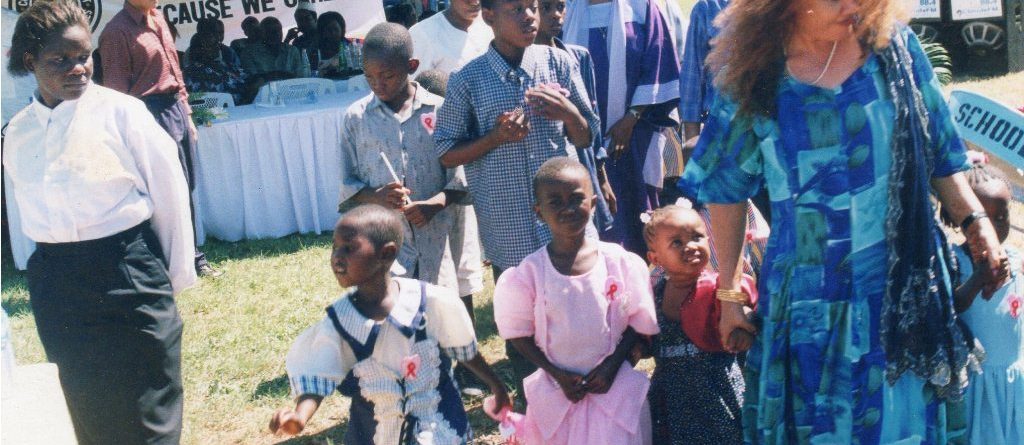

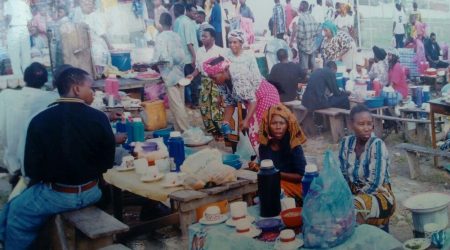
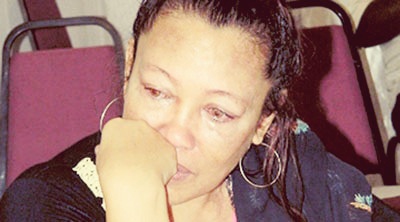
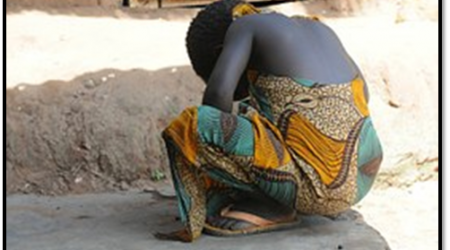




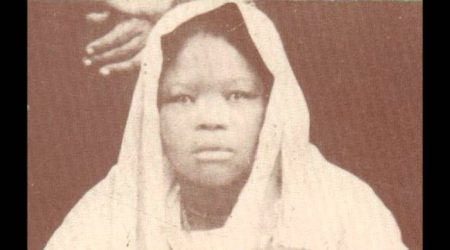
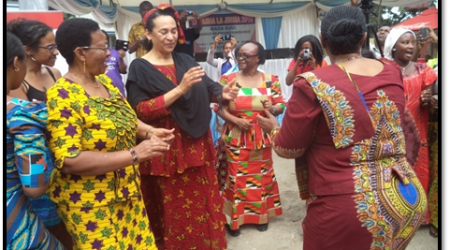

Comment (1)
Aweful stuff …thank you for educating us on these social matters that need urgent addressing and indeed each one of us can play our part in stopping this inhumane behaviour.